401: Instructor Orientation to Online Teaching
A FutureU™ Faculty Development Course
Make the Most of Teaching Online
There’s a whole lot more to planning and creating a technology-enriched course than learning how to use course management software. After all, you didn’t learn how to teach just by mastering the use of chalk on a blackboard or the light switches in a classroom!
The online classroom represents a whole new way of communicating and learning, with its own set of challenges and opportunities.
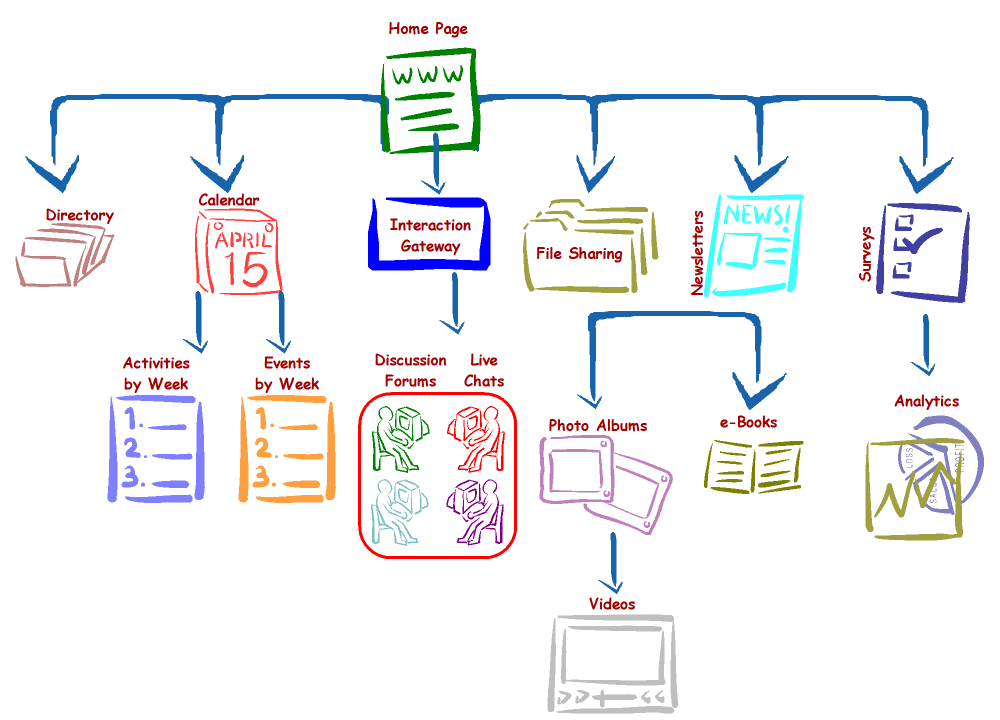
There’s a whole lot more to planning and creating a technology-enriched course than learning how to use course management software. After all, you didn’t learn how to teach just by mastering the use of chalk on a blackboard or the light switches in a classroom!
The online classroom represents a whole new way of communicating and learning, with its own set of challenges and opportunities.
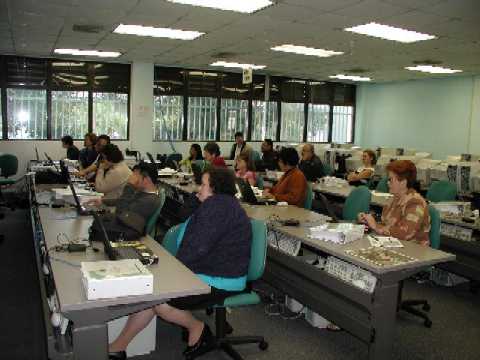
— Photo by Claude Whitmyer.

— Photo by Claude Whitmyer.
Even the best vendor training only scratches the surface. Until now, the only other alternative was to enroll in an expensive graduate or certificate program that might take a year or more to complete.
FutureU™ is proud to offer our faculty-tested orientation and advancement program for planning, building, and teaching an online or blended course.
This FutureU™ program helps you achieve real competence with the skills, tools and processes involved in technology-enriched education—in just six weeks.
You will work online with an experienced FutureU™ facilitator/instructor and other course designers like you as you each move step by step through the four phases of online course development: discovery, design, development, delivery.
You will then unfold your course at your school and with your own students in a way that truly encourages interactive, collaborative learning. This is the faculty development program for instructors who are serious about using technology in their courses and want an easy, low-cost way to prepare for success.
Who Should Attend
For instructors and course designers who are ready to add technology-enriched learning activities to their existing courses or who want to build a course that is delivered completely online. This program will help you make the most of your investment in hardware and software as you plan, create, and deliver courses with one or more technology components. You will learn the best ways to add and use online course tools like discussion forums, chat, email attachments, organized lessons and assignments, group learning activities and more.
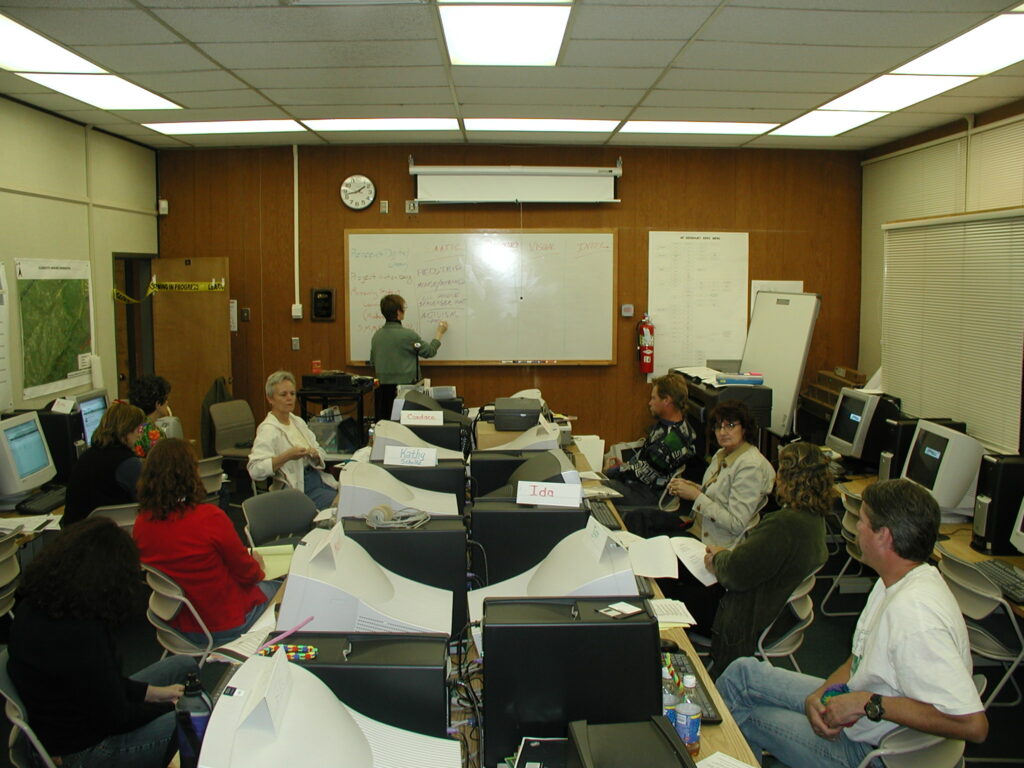
Course Design
FORMAT 1:
- Delivery mix: 100% Online
- Duration: Six weeks.
- Time commitment: Asynchronous (participants “attend class” from their own desktop or laptop computer, at home or at work, and at whatever time is most convenient to them).
- Primary communication channel: Discussion forums (participants post messages to threaded discussion topics).
- Secondary communication channels: email, chat.
- Technical and Learning Support: Instructor Supported by email and tech support discussion forum.
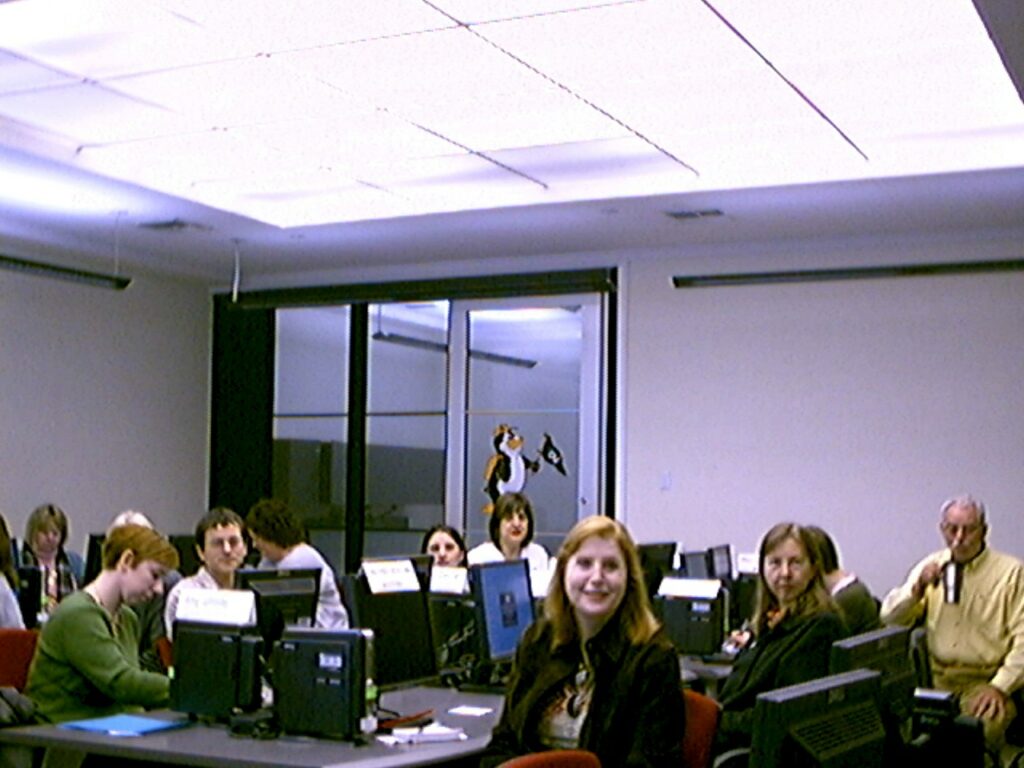
FORMAT 2:
- Delivery mix: Blended (partially online, partially face-to-face
- Duration: Two one-day, face-to-face workshops surrounded by 4 weeks of partially asynchronous, partially synchronous online time.
- Time commitment: Synchronous (participants attend normal classroom in real time and “attend class” from their own desktop or laptop computer, at home or at work, and at whatever time is most convenient to them).
- Primary communication channel: Face-to-face classroom discussions, discussion forums (participants post messages to threaded discussion topics) with web conferences as needed.
- Secondary communication channels: email, chat.
- Technical and Learning Support: Instructor Supported by email and tech support discussion forum as well as real-time office hours using web conferencing.
In either format, online participation requires an average of 1 hour per day, 5 out of 7 days per week. Includes a 1-year license for the FutureU Faculty Web Book, Volumes 1 & 2 ($99.00 retail), and a 1-year membership in FutureU’s virtual community.
Instructor(s)
This program is usually led by FutureU co-founder Claude Whitmyer, who has been learning and teaching online since the early 1980s, before the World Wide Web even existed. His friendly communication style makes it easy for participants to master the sometimes challenging tools of Web-based instruction, and his skillful use of threading, harvesting, weaving, and other hallmarks of good online facilitation provides a model for every instructor. Mr. Whitmyer may be assisted by one or more FutureU associates who have been trained in FutureU’s effective online facilitation methods and who have themselves completed this or a similar program.
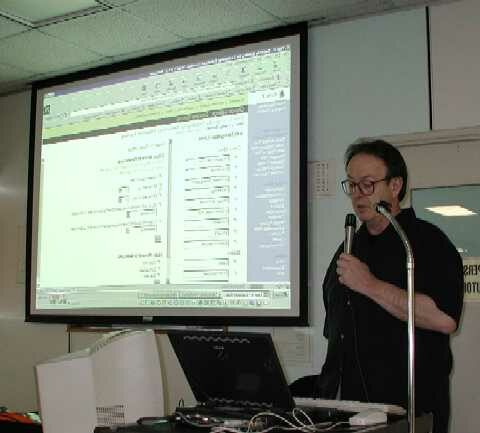
Topics Covered
Part 1: Help Your Students Succeed At E-Learning. Available as the first part of this program or as a stand-alone module. Participants solidify and build on what they already know about e-learning:
- the advantages and challenges
- the unique time management skills required
- the unique structural elements such as navigation
- hardware/software requirements
- email and discussion skills
- file sharing
- Internet research
- standards for frequency and style of participation
- ergonomic and other safety issues
- facilitation skills for online group interaction and collaboration
Part 2: Plan and Create a Technology-Enriched Course. Also available as a stand-alone module. A step-by-step walk-through of the four phases of course design as they apply to e-learning, with a checklist for each phase.
- how to accommodate different learning styles in the online environment.
- overcoming time management and workload issues.
- site visits to, and discussion of, existing online courses.
- the differences between the physical and electronic classroom.
- the differences between traditional learning and facilitated collaborative learning.
- considerations of time and place.
- the possible delivery mixes, learning structures, learning activities, and media choices unique to e-learning.
- benefits and limitations of various media, with ideas to help you choose the right combination for your purposes.
- mapping, storyboarding, chunking and linking, and sequencing.
- three types of presentation design.
- facilitation skills for asynchronous discussions, including harvesting and weaving.
- how to effectively use chat.
- audio and video on the Web.
- an introduction to basic HTML codes for creating Web pages and enhancing their appearance.
- a link to valuable course resources.
- tracking and evaluating assignments.
- tips for launching your online course in a way that encourages participation.
- an annotated list of print books that can further deepen your own and your students’ understanding of the Internet and e-learning.
- hyperlinks to many other Web sites that address specific aspects of e-learning and technology-enriched course development.
Required Readings
Both volumes of FutureU’s Faculty Web Book:
- Volume 1: Understanding the Student View of Technology-Enriched Learning (with special annotations for instructors)
- Volume 2: Planning and Creating a Technology-Enriched Course.
You may review the table of contents for Volume 1 here or Volume 2 here.
Recommended: We put quite a bit of effort into staying current with the latest books about teaching and learning online. So each time a course is offered, we include a list of recommended readings.
Prerequisites
- Ability to work at a detailed level.
- Eagerness to try some new ways of thinking about teaching and learning.
- Ability to keep going in the face of sometimes challenging and frustrating experiences.
- Typing skill of 90-100% accuracy at a net 20 words per minute, minimum.
- Basic computer literacy, including how to use Windows and Windows Explorer or MacOS and Mac Finder, how to use a mouse, and so forth.
- Ability to enter an HTTP URL into the address window of a browser and have the page come up.
- Ability to create directories or folders and to use Notepad or another text editor to make and save files to a particular directory or folder.
- Familiarity with a major-brand word-processing software, such as Microsoft Word, or Libre Office Writer is strongly recommended.
Technical Requirements
Delivery Options
Price
Customization
We can customize this program to address your particular requirements and preferences. For example, the version we created for Missouri State University included resources and examples provided by the client contact (a dean of one of the colleges).
Learn More . . .
To learn more about our portfolio of services, contact us directly.
